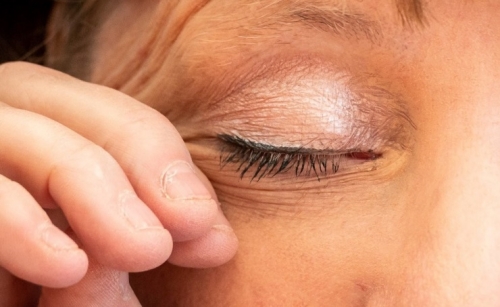Risk of catching coronavirus through the eye is low, doctors say
Freiburg
The risk that you might catch the coronavirus through your eyes is low - although not non-existent - according to ophthalmologists, addressing early research on the possibility of infections through the tissue surrounding the eyes.
Several passages link the eyes and nose, such as tear ducts, but as far as scientists are currently aware, "there's nothing to suggest that we need to consider the eyes as a significant entry or exit point for the virus," according to Clemens Lange, a professor of eye medicine at the University Hospital Freiburg in Germany, Deutsche press agency (dpa) reported.
However if your hands have coronavirus germs and you then rub your eyes, "transmitting to the nasal mucosa or the respiratory tract would be conceivable," Lange told the German Ophthalmological Society (DOG) annual conference, taking place from October 9-11.
Several studies have suggested that people can be infected through the conjunctiva, a tissue that lines the inside of the eyelids and covers the sclera. But whether there are enough cells on the surface of the eye for the virus to enter has yet to be clarified, Lange said.
In a study involving samples from 46 people, no one had enough of the receptors in the conjunctiva by which the virus gains cellular entry, according to Lange, who was involved in the study.
Other scientists have found indicators of these receptors in the eye cornea, but have not examined whether the coronavirus can be transmitted this way.
Lange said it is also unlikely that the virus can be spread via tear fluid. "Blinking regularly and the eye's limit surface area should prevent sufficient quantities of the virus from entering the eye," he said.
Also, the tear film of people infected with the virus rarely contained viral genetic material, he said.
However, Lange said he was not excluding the possibility that the virus could be transmitted through the eyes.
And even during opticians' examinations, however, if a patient is infected, any aerosols they breathe present a significantly higher risk for physicians than the patients' tear film and ocular surface
"Although we don't currently have to fear any infection via the eye, further investigations are necessary in order to obtain information about the actual infectiousness and the possible places where the virus multiplies," said DOG President Hans Hoerauf of the University Medical Center Goettingen.
Although the risk would appear to be low, hospital staff are still strongly advised to wear glasses to protect their eyes during some activities involved in intensive care of coronavirus patients, he said.
Related Posts

